Wow, just back from the Integral European Conference (IEC) in Budapest and getting ready for the Integral Living Room gathering here in Boulder this weekend. My integral cup runneth over! But I’m not complaining. On the contrary, I am inspired, renewed, loved-up and more than ever committed to supporting the emergence of integral thinking and functioning.
So, a bit on the run, I offer these reflections on the IEC while they’re still fresh:
My main takeaway from the conference is that the European scene is vibrant, growing and it has an identity all its own. It’s no longer a satellite or suburb of the American integral movement.
This is tremendously exciting as it provides another indigenous karmic field in which the integral vision can arise.
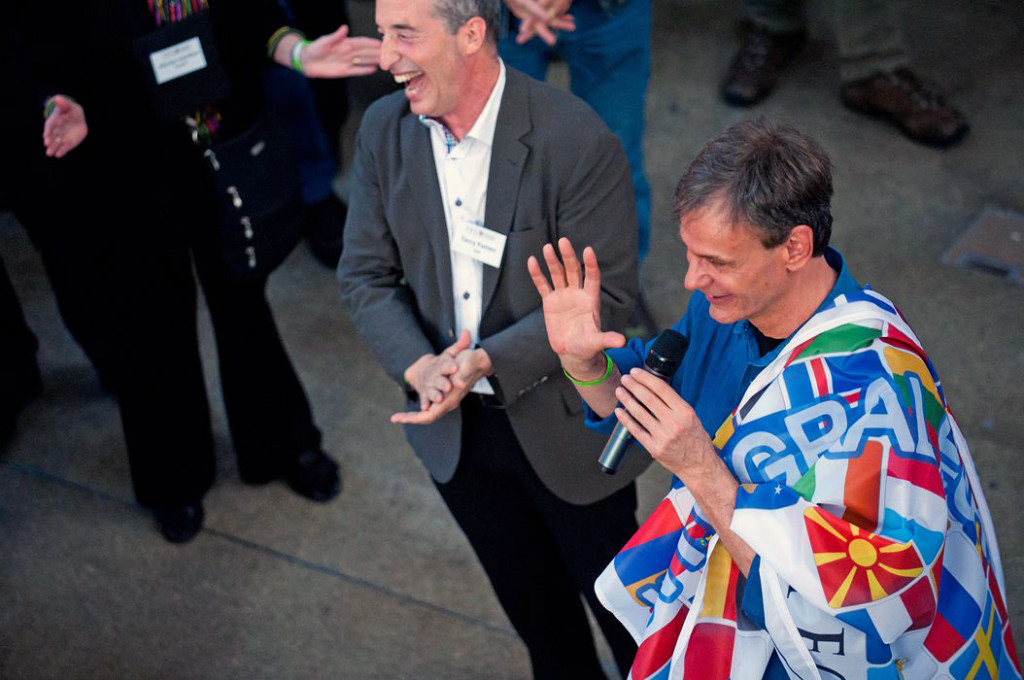
Jeff thanking the attendees after receiving a flag of all the European nations as a gift from the European integral community to the US.
It’s interesting to see what happens when movements are transplanted from one culture to another. Often the movement is purified because old karmas and baggage are left in the original countries, and its essential seeds are planted in the new soil. We saw this with the arising of modernity and democracy. The first principles arose in Europe but they were transplanted more quickly into America where there was no history of monarchy. We see it today with the transfer of religions from the east to the west. The cultural baggage of the indigenous Buddhism, for instance, is left behind as the doctrines and practices are transferred to the west. So it is that integral now grows in a fresh new field. The Hungarians claim that their vegetables taste better because of their unique and rich soil (and they’re right!); it’ll be fascinating to see how integral develops in the European milieu.
So what are the differences between the European and American sensibilities? This was a topic of conversation at the conference, and many people see the differences expressed in the polarity between optimism/idealism (the Americans) and pessimism/realism (the Europeans).
I think there’s a lot of truth to that, and no doubt the history and life experience of each group plays a role. Much of Europe is more culturally advanced than America, with many more people at a green altitude. Europe has earned this position the hard way, however, through millennia of warfare, including and right up through the first half of the Twentieth Century.
Check out this video of the last thousand years of European history in 3.5 minutes. As you watch this time lapse dance of borders, keep in mind that virtually every movement was the result of war:
Watch as 1000 years of European borders change… by nickmironenko
The horrid European wars of the 20th Century were fed by a culture of romantic, militant triumphalism that were expressed in odes to the superiority and inevitability of one’s nation’s destiny over all others. This is a psychological feature of all peoples at the Traditional stage of development, which is ethnocentric (we’re the good people surrounded by the bad people). The political history of the whole world can be seen as a nest of writhing borders as tribes and states struggle for supremacy.
This warring continues until the modern stage of development becomes dominant, not only in the exteriors of the society (technology) but also in the interiors (consciousness and culture). At this stage of the game people have learned a few things: 1) modern weaponry is too destructive to actually be used, 2) conquering people is a lot of trouble and 3) cooperating with them is a far more fruitful path forward.
Europeans know this in their bones; Americans haven’t quite got the memo. The last real war on our soil was the Civil War which, brutal as it was, ended in 1865 and has become part of our national hagiography. On the other hand, the Second World War ended a mere lifetime ago, in 1945, leaving much of Europe devastated. For the poor Eastern Europeans the end of the war was followed by forty plus years of Soviet domination, which also marched to the beat of progress and triumph.
So who can blame the Europeans for being a bit allergic to romantic idealism and all its trappings? The message of the integral vision’s superiority and inevitability doesn’t feel like forward to them; it feels like backward.
One woman reminded me that she had walked out of my talk at the Integrales Forum in Berlin two years ago, and she remembered exactly why. It was because I had identified myself as an integral “evangelist” and used the word “hallelujah” to convey my enthusiasm for the integral vision. “No German can tolerate that kind of talk,” she said.
And this is where I begin to see the limits of the thesis of the American/European polarity. Indeed many Germans did like my message two years ago and have gone to the trouble to tell me so. I’ve also encountered lots of Americans who have an aversion to my more positive take on things. So while it’s mildly true in the aggregate, person by person you just never know.
At any rate the cross-pollination has begun and we will all be better for it.
Let us all honor Bence Ganti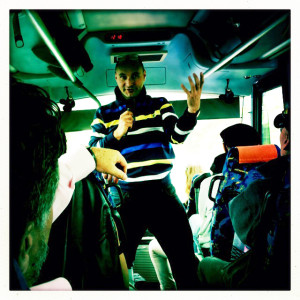
One thing is manifestly clear coming out of this event: we have a wonderful new leader in the integral community, Bence Ganti. The driving force behind the conference, Bence is the founder of the Integral Academy in Budapest, where he has trained over four hundred students in a three year program of integrally-informed psychotherapy. His community, as well as key players in the existing integral European scene, such as Dennis Wittrock and Raquel Torrent, formed the human backbone of the event.
It was a major risk for Bence financially that could have placed him personally in dire straights had it failed. But it succeeded, and Bence has a lot to do with that. Bence leads from both the heart and head. He is as comfortable talking theory as he is directing a large-group psychodrama, or leading a drumming circle in the woods.
It is never about gaining attention for himself, but rather it is about creating a richer experience for the participants. His impeccable intention helped everybody relax because we knew we were in strong, safe hands. From that place creativity can happen, and it did.
First of all, Bence’s invitation attracted over five hundred participants from thirty countries. The conference featured sixty presentations ranging from Ervin Laszlo’s Integral Consciousness in a Self Actualizing Cosmos, to a video presentation by Roger Walsh called The State of Integral Now and Future, to dozens of workshops and smaller presentations, like Stålnes’s An Integral Perspective on Peak Oil and circling practice led by the Circling Europe guys, John and Sean. It was a first-class event, not just in the people it attracted, but in the venue, Millenaris Square, which is an old factory in the center of beautiful Budapest that has been repurposed as a world-class conference center. (Check out this photo essay by my colleague Brett Walker).
Which brings me to the high point of the conference, which is the high point of every integral event I have ever attended: just being with the tribe. The presentations and exercises are all great, but what sticks with me are the people I met and the friends I made.
The meshwork of integrally-inspired people and resources continues to weave itself, and this Integral European Conference feels like a booster rocket for the work we’re all doing together, the work of building a more intelligent, loving and sustainable world for the benefit of all.
Hallelujah!

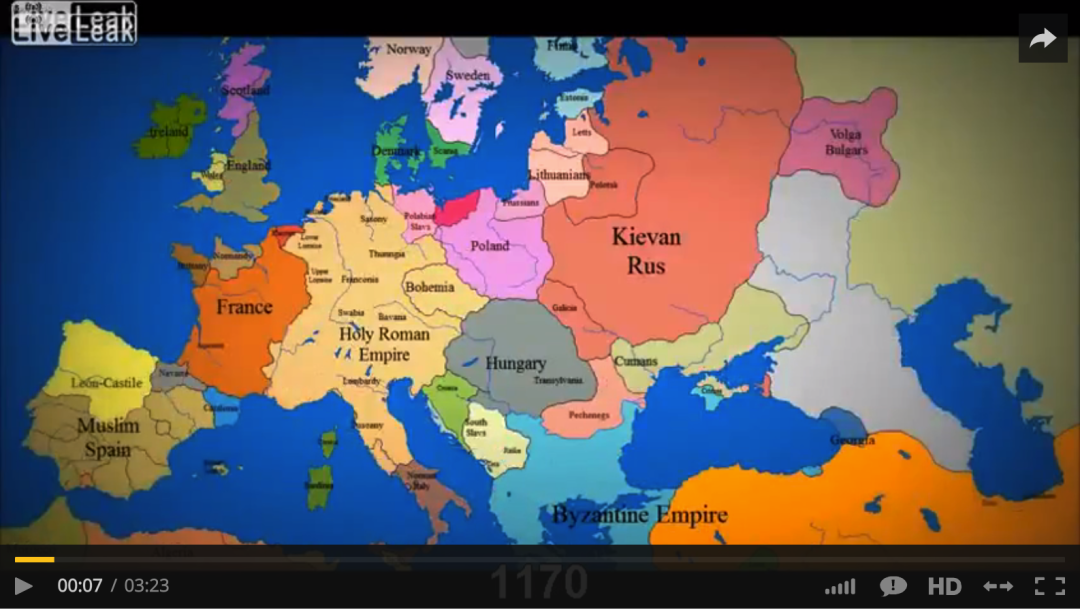
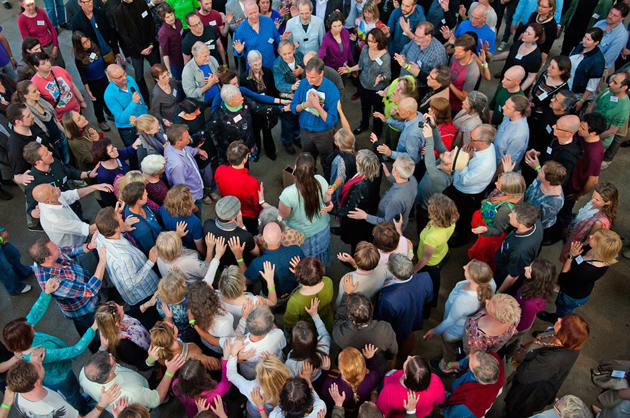
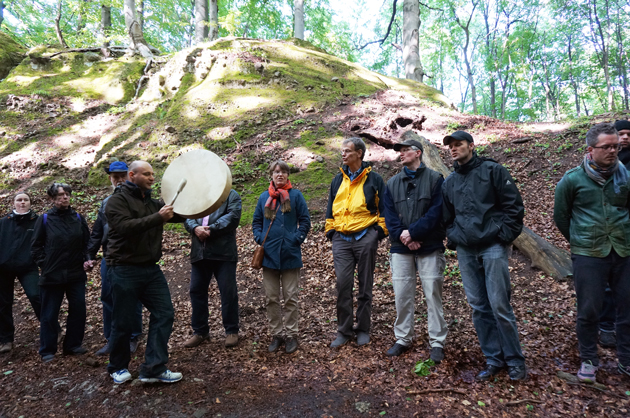
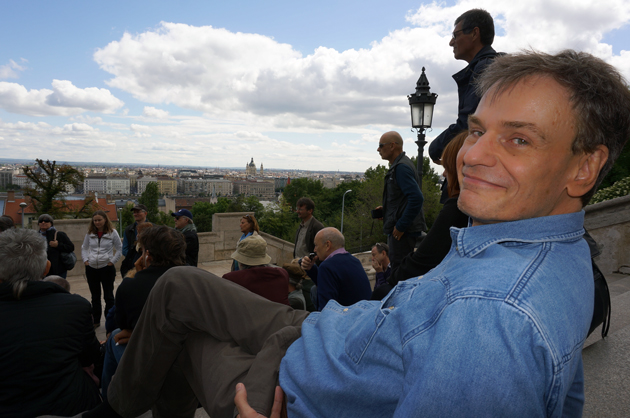





Hi Jeff,
Thanks for this summary of the booster rocket. Very energizing.
I am struck by the comment two years ago, “No German can tolerate that kind of talk” coupled with your assertion that many Germans went out of their way to say thanks. To what extent did this feedback lead you to change your words or tone at the recent conference?
Awasome Jeff and Brett! Thank you! This is so inspiring and so on target today! Small dosis of these gatherings provide huge dosis of enthusiasm!!!! We need to think of having one of these in South America..
I am thinking on the optimism/idealism (Americans), pessimism/realism (Europeans) and have found the in Latin America from the 16th century when the New World was conquered and Spain extended its empire with the colonies they brought with the the Utopian imaginary and left in the unconscious collective the pessimism! Leaving out the realism…so we live in a continous fantasy of a New world disconnected to the present and its reality. This is written very well in the narratives of novelist such as Carlos Fuentes, Gabriel Garcia Marquez’s. This is the “realism imaginary found in “Cien Anyos de Soledad”